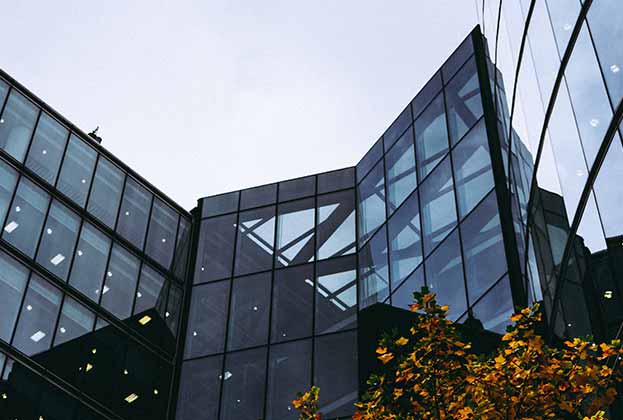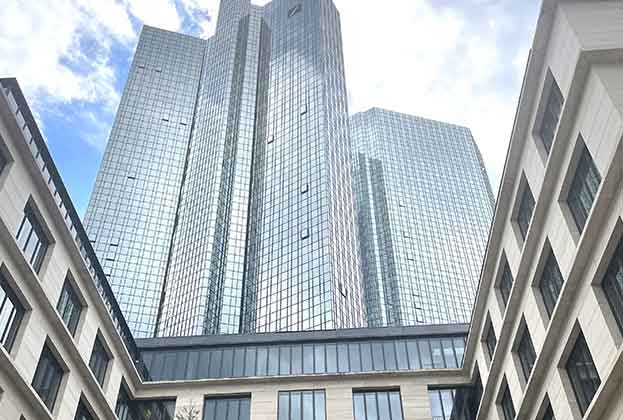Mens sana in corpore sano comes from a Roman poem, specifically the Satir X line 356, dated back to the II Century and whose origin explored the intellectual, athletic and spiritual environment of the Human Being (soul-body-mind) for a search of full and complete happiness.
Nowadays, is has been reduced to body and mind, but we must not underestimate its scope and how it affects us in our daily working activity. This is how our society understands it for its personnel life and it has reached the working environment to become a key factor.
The companies wish to have healthy environments, where people are happy and according to certain surveys become directly more competitive and productive by 20%. (*)
Under the formula Happiness at Work = Working Environment + flexibility + leader + professional development + salary, what role does our working environment have?
Personnel happiness consists, according to Psychology experts from of the University of California, 50% due to genetic components, 10% to daily situations which arise in the environment and 40% to exercising positive thoughts, conducts and actions which lead directly to happiness of each individual. (**)
Notwithstanding researchers, in a survey carried out by a recruitment company of 3,500 Spanish workers, they were asked about their happiness at work in 2017, 51% of the respondents had the feeling happiness at work had come to stay, 75% confirmed they felt happy at their work place and considered as critical factors by order the following: good working environment, flexible hours, being guided by a great leader who permits to develop the highest possible professional skills and having a good salary.(***) Under the formula Happiness at Work = Working Environment + flexibility + leader + professional development + salary, what role does our working environment have?
On the other hand, we must take into account that the working absenteeism in Spain by ITCC (Working Handicaps by Common Contingencies) represented in 2017 a 10.37% more than in 2016. If we sum the direct cost these sick leaves meant for the companies and the opportunity costs in terms of production of goods and services which were ceased or not produced, the result is that absenteeism by ITCC in 2017 amounted to 76,751.65 million Euros, which is an increase of 11.01% when compared to 2016.
The environments WELL certified the desired levels of comfort and welfare (sometimes even long-awaited) for people. There are currently over 1,122 WELL projects in the world, scattered among over 42 countries, of which 136 have already been certified and 986 are in process, adding to a total of over 3.85 Mn of sq m. of WELL environments.
Water, air, food, power, exercise, comfort and mind are some key factors to generate healthy environments and boost the working happiness
Beyond the certifications and the warning data of working absenteeism, let´s analyze some key factors allowing us to design a healthy working environment and make people working there happier:
Water, air, food, power, exercise, comfort and mind are some key factors to generate healthy environments and boost the working happiness. Corporate commitment and self-demand for people.
In search for comfort, climate comfort is vital, insulation, excellence in the ergonomic design and the care in the sense of smell (one of the senses least cared for up until now) become very important; without forgetting the water treatment and consumption, the air quality with the goal of eliminating pollution particles establishing filtration and purification processes which will directly affect our people’s health, as well as the use and management of power, which goes through designing spaces with maximum accessibility to natural light and the quality of the artificial light and its management/efficiency. A wrong design and use of the same could lead to mental fatigue, eye irritation and even biological affectations which could lead to heart rhythms fluctuations and sleeping disorders.
Food acquires importance thorough healthy options in vending, catering, consumption of fruits and vegetables, etc…but also through instructive lectures or individual medical follow-ups allowing people to train themselves. The company settles the basis and the commitment is personal (and not transferable).
Many companies encourage exercise, by promoting a gym or developing healthy activities that arise proactively from their employers: running teams, paddle, tennis, hiking, etc… To the own benefits of the activity, we must sum the benefits that arise from the improvements of the working environment, to take away tensions and/or stress and encourage teamwork between others.
A determining and differentiating factor in the companies is caring of the mind of their employers, thorough policies and actions that boost mental (yoga or meditation or even spaces to relax accepted as daily activities), emotional well-being and stress management (coaching, outdoor activities, disconnection policies, etc.).
We are in an exciting moment in the conception of new ways of working, the new working environments go beyond the physical environment and they are already embracing a whole, the use of technology (mobility, accessibility, attendance, etc.), above all, it must be a facilitating and integrating element, no one wants to abandon without achieving full happiness of people in the new working environments.
Let’s be happy because we deserve it.
(*) IFMA Spain in the Workplace Summit
(**) Sonja Lyubomirsky (teacher). University of Psychology of California, 2018
(***) Adecco VII Survey about working happiness 2017
View magazine: Vision 2019 [click here]










